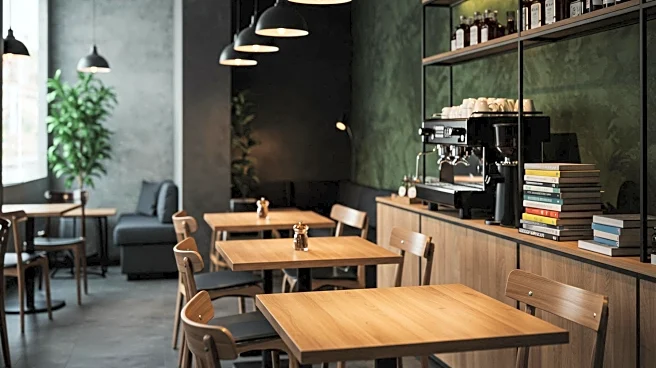What's Happening?
Starbucks in South Korea has implemented a new policy requesting customers to refrain from bringing bulky office equipment, such as desktop computers and printers, into their cafes. This decision comes in response to the growing trend of individuals using cafes as makeshift offices, a practice known locally as 'cagongjok.' The policy aims to maintain a balance between being a casual coffee shop and accommodating remote workers. While laptops and smaller devices remain welcome, the restriction is intended to ensure that seating and shared spaces are not overly impacted by large equipment.
Why It's Important?
This move by Starbucks highlights the challenges faced by cafes worldwide in adapting to the increasing number of remote workers using their spaces. The policy reflects a broader societal debate about the use of public spaces for work and the responsibilities of businesses to manage their environments. For Starbucks, maintaining a welcoming atmosphere for all customers is crucial, as overcrowding and extended stays by remote workers can deter other patrons. This decision may set a precedent for other cafes facing similar issues, potentially influencing industry standards.
Beyond the Headlines
The policy also touches on cultural norms, as the practice of removing shoes indoors is common in many Asian countries. By addressing the 'cagongjok' phenomenon, Starbucks is navigating cultural expectations and modern work trends. This situation raises questions about the future of workspaces and the role of public venues in supporting remote work, especially as hybrid work models become more prevalent.








